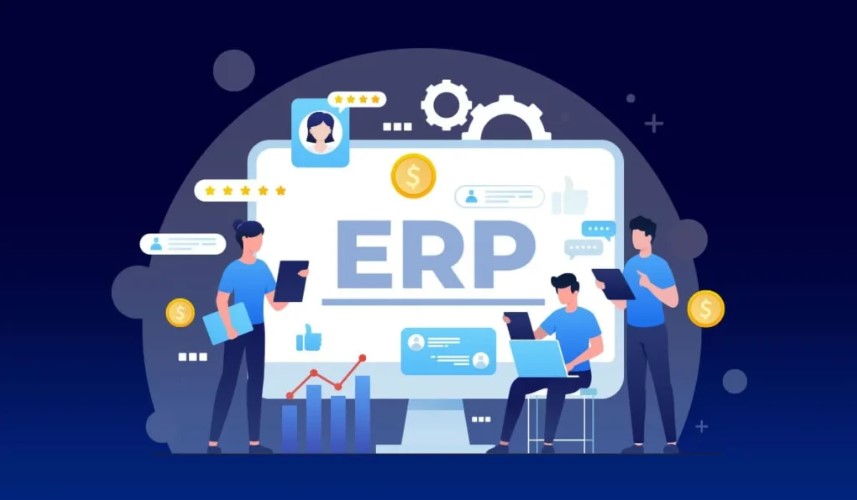Unfortunately, there are quite a lot of failed ERP implementation projects, and it’s possible to waste a lot of time and money. Here are some thoughts on this from someone here at ERP Talent who has extensive ERP experience.
One big problem is choosing the wrong ERP or wrong partner. These can go together because a partner (or the ERP vendor itself) may be trying to sell you a solution that isn’t right for your business. It is important to understand the existing processes and key requirements, and we recommend an independent feasibility study.
Once you have decided on an ERP solution, it’s important to properly evaluate the proposed solution. We recommend a proof of concept that includes documentation (e.g., “gap analysis” and “solution summary”). One potential problem is trying to make the new ERP work exactly the same as the old system (or Excel if that’s what you are using). This is a tricky area because your old system is a good starting point, but it’s rarely a good idea to replicate what you have unless the new system can easily be made to work that way. Exploring that in the Proof-of-Concept can reduce cost and risk.
Of course, you will need a strong project team. They must allocate enough time and give it a high priority, and we strongly recommend that you support them with high-quality ERP training and workshops.
Users are also very important, whether or not they’re project team members. Resistance or lack of interest can become a big obstacle. Users may be familiar with the old system and not want to change, or they may not really understand the business requirements, or they may be jealously guarding their “expertise.”
High-quality ERP training is, therefore, crucial to the success of the implementation. It can be very off-putting for users if the training is superficial or doesn’t address the impact on the business, so we can provide bespoke training tailored to your business.
It’s also important to get buy-in and commitment from senior management and to ensure that this support is communicated to the wider team. This makes it much more likely that team members will commit themselves to a successful implementation. We can provide high-quality ERP training and workshops for managers so that they can fully understand the benefits for the business.
Another key success factor is understanding the ERP system and configuring it properly. This can be addressed with high-quality ERP training and workshops.
- This should help to avoid having too much customisation (which is another common cause of problems). Sometimes customisation is needed, and it then becomes important to follow the correct procedures and find a good partner to do the development.
It’s important to think carefully about data migration. You will definitely need master data such as products, customers, suppliers, and prices, but time can be wasted trying to migrate too much historical data or making this too complex. We can provide assistance with migration if required.
One common reason for failure is insufficient or poorly done testing. Sometimes, it’s because of a lack of time or budget, but this will almost inevitably catch up with you later on when it will consume more time and more money than if it was done when it should have been. We can provide assistance with writing test plans if required.
Another problem is a lack of documentation (or poor quality incomplete documentation), and we strongly recommend starting this during the Proof–of–Concept stage and keeping it updated and reviewed.
Project Management is always important, and we can provide a Project Manager (PM) for your project. Key tasks include:
- Planning the project phases and deadlines
- This is the most basic function of a Project Manager (PM). All projects must have a schedule, and key stakeholders must be informed of the current status
- Budget control
- Projects will have a budget, and the PM must track this and report regularly to stakeholders
- Scope control
- Projects often fail because of “scope creep” (including excessive customisation).
- A good Project Manager (PM) will stay focused on the key requirements and business objectives.
- Change management
- If you have customization, it’s important to ensure that this is managed effectively.
- This may also include managing the phased implementation of different modules
- Risk management
- It’s essential to understand risks and then manage them.
- Risks are unavoidable, and if you think your project is risk-free you may have a nasty surprise.
- The key is recognizing the risks and then dealing with them rather than ignoring them.
- For example, one huge risk factor is going live because of “hard” deadlines when the system is not ready (e.g. go-live at the start of a new financial year).
- Project team members should understand why this can create significant problems.
- Sometimes, this direction comes from senior management, and it may be challenging for the team or PM to explain why it doesn’t make sense. We can help you with this.
- This can also be a problem for project managers who follow a plan without fully understanding its implications for the business.
We hope these are useful guidelines. We believe that if you start with an independent feasibility study and then do a proof of concept (that includes documentation of the proposed solution and any gaps), you will have a solid foundation for your ERP implementation. Then, you should add high-quality ERP training and workshops for your project team, as well as an experienced project manager, to deal with the planning, execution, risks, and budget.
We look forward to working with you to make your ERP implementation and rollout successful. Contact us today!
